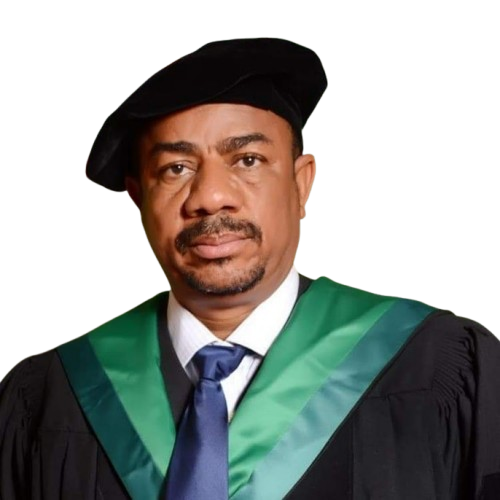Master of International Studies
Philosophy
The Master of International Studies programme has been designed to provide training needs for manpower development within the context of the global environment. States have related since ancient times down to the contemporary era. It is necessary to study the relational developments, changes and transformations on the world scene in historical perspectives on the realization that the globe has been beset with crisis of different dimensions. The state of contemporary world history indicates that the increasing conflicts and the complex nature of international issues demand for systematic study and analysis. The international scene is now shrouded in intricate relationships due to the history of technological inventions and recent developments in the information and communication highways. The international boundaries that hitherto were positive determinants in the sovereignty of nation-states have drastically been eroded in importance due to these historical developments. The course is an attempt to develop ability to comprehend the history, socio-economic ideas and politics of international power relation as well as its application in the global politics.
Aim and Objectives
The aim of the programme is to expose students to issues of global importance and sharpen their intellect by instilling in them a critical mind to make them appreciate various dimensions of international issues in every facet of Nigerian, African, European, Asian and American history and other issues of international affairs.
The objectives are to:
- train candidates to understand the central debates in the history of relation development.
- enable candidates apply a variety of theories to specific themes and issues of international historical discourse.
- enable candidates have a proper grasp of Nigeria’s past and current focus on international issues and the lessons that could be derived out of the development.
- prepare candidates in the field of humanities and other disciplines wishing to pursue a career in the academic, international organizations and civil service.
- enable students to avail themselves of the lessons of history and apply them as appropriate to resolving national developmental challenges.
Admission Requirements
- Five O’level Credits which must include English Language, History, Government or Civic Education.
- Bachelors degree with at least 2nd Class Lower Division in any discipline in Humanities from any recognized University.
- 3rd Class Degree with Postgraduate Diploma in relevant area.
- Bachelors Degree in Professional Courses (e.g. Agriculture, Engineering, Pharmacy, Medicine, etc.) or Sciences (e.g. Mathematics, Chemistry, Biology, etc.) with classification as in i or ii above. In addition candidates must have undergone a Postgraduate Diploma in courses of Humanities from any recognized University.
- In addition to i-iv above, all candidates must satisfy the University’s requirement for matriculation.
Any other qualification acceptable to the Board of Postgraduate School and Senate of the University.
- Mode of Study
The M.A. International Studies programme shall be by both research and course work comprising of 30 units of taught courses and 6 units of Research Project.
- Duration
A minimum of 24 and maximum of 36 calendar months.
- Tuition fees: As may be determined by the University from time to time.
- Career Opportunities:
The M. A. International Studies is designed to enhance the understanding and capacity building of professionals working in the foreign service, defence and security personnel, attachees within the country and missions abroad, career civil servants, Personnel of International and Regional Organizations, NGOs, staff of corporate organizations and multi-national agencies and firms.
Areas of Specialization:
Candidates could specialize in the study of the following:
- International and Regional Communities/Organizations
- Development issues and Transborder Resources
- Wars and Peace Making
- Alternative Development Strategies
- Gender and Human Ri ghts Issues
- Diplomatic History
- Global Religious /Social Issues
Graduation Requirements
To be awarded the M.A degree in International Studies, a candidate must pass a minimum of 36 and a maximum of 44 credit units made up of as follows:
- A minimum of 24 credit units of core courses.
- Elective courses of at least 6 credit units.
- A student will also be required to submit a Research Project of 6 credit units
- The student must also satisfy all other regulations as stated in the Postgraduate guidelines of Usmanu Danfodiyo University, Sokoto.
Master of International Studies Courses
Course Code |
Course Title |
Units |
MIS 801 |
Research Methodology |
3 |
MIS 802 |
Theories of International Relations |
3 |
MIS 803 |
The State and International Politics |
3 |
MIS 804 |
Nigeria and International Communities |
3 |
MIS 805 |
International Law and Diplomacy |
3 |
MIS 806 |
Resources and Development in the World Scene |
3 |
MIS 807 |
Gender and International Studies |
3 |
MIS 808 |
International Borders and Trans-border Resources |
3 |
MIS 899 |
Research Project |
6 |
|
ICT |
2 |
|
Entrepreneurship |
2 |
Electives
Course Code |
Course Title |
Units |
MIS 809 |
International Political Economy |
2 |
MIS 810 |
Alternative Development Strategies: Africa and Developing World |
2 |
MIS 811 |
Religion and Politics in the International Scene |
2 |
MIS 812 |
Global Human Rights Issues |
2 |
MIS 813 |
War and Peace in World History |
2 |
MIS 814 |
The Middle East: Regional and Strategic Issues in the 20th and 21st Centuries |
2 |
MIS 815 |
Environment and International Politics |
2 |
MIS 816 |
Culture, Games and Sports in the World Scene |
2 |

